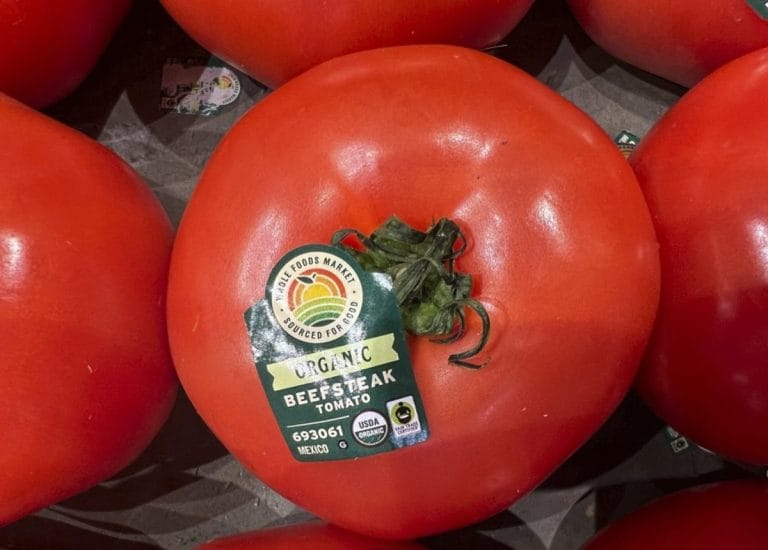🎧 Listen to This Article
Tomato Trade War Looms as U.S. Plans New Import Duty on Mexican Produce
As Americans celebrate Cinco de Mayo, a simmering cross-border trade fight threatens to drive up prices for one of the holiday’s most essential ingredients: tomatoes.
Beginning July 14, 2025, the U.S. government is set to impose a 21% duty on fresh Mexican tomatoes, a move designed to protect struggling domestic producers but one that critics warn will lead to higher food costs for American consumers and restaurants.
Tomatoes join a long list of produce caught in the middle of a decades-long economic and political tug-of-war between U.S. agricultural protectionism and Mexico’s cost-effective farming practices.
Who Wants the Tariff and Why?
Proponents of the import duty argue it’s necessary to revive the dwindling U.S. tomato industry, particularly in Florida and California. According to the Florida Tomato Exchange, Mexican tomatoes now supply 70% of the U.S. market, up from 30% two decades ago.
“If we don’t even the playing field, there won’t be a domestic fresh tomato industry left,” said Robert Guenther of the Florida Tomato Exchange.
He claims that Mexico’s artificially low prices, aided by cheaper labor, land, and inputs, undermine fair competition, even though both countries agreed to a pricing framework under a suspension agreement dating back to the NAFTA era. The U.S. Commerce Department abandoned that deal last month amid pressure from American growers.
Opposition Grows Among Importers and Retailers
Companies that rely on Mexican imports say the tariff would cost them millions of monthly new duties. They claim These added costs will need to be passed on to the consumer.”
Restaurants are bracing, too. At Don Artemio, an award-winning Mexican restaurant in Fort Worth, co-owner Adrian Burciaga says they use up to 400 pounds of Roma tomatoes weekly, all from Mexico. He pays $19 per 25-pound crate now but expects prices to rise.
“We don’t want to compromise on flavor,” Burciaga said. “We want tomatoes that remind us of home.”
Tomato Prices Could Spike by 10%
Arizona State University agribusiness professor Tim Richards predicts that the 21% duty would increase retail tomato prices by 10.5%.
That’s not just a nuisance for shoppers. It’s a significant budgeting challenge for restaurants and wholesalers with tight margins.
Labor, Climate, and Taste Divide the Debate
The deeper tension lies in structural cost differences:
- U.S. tomato workers (H-2A visa program): Paid $16.98/hour on average in 2024
- Mexican tomato workers: Paid roughly one-tenth of that
- Climate costs: Mexican greenhouses often require no artificial lighting, heating, or cooling
Politics and Possible Retaliation
Mexico’s government hopes to negotiate a resolution but has threatened reciprocal tariffs on American chicken and pork legs if the tomato duty takes effect.
Mexican President Claudia Sheinbaum is under pressure to protect an industry that supplies billions of pounds of tomatoes to the U.S. every year.
The U.S., meanwhile, is responding to growing demands from domestic producers who feel neglected for decades. Spot-check enforcement of pricing minimums hasn’t satisfied growers like Guenther, who say cheating is widespread.
The Stakes for Consumers and Culture
Beyond economics, this tomato clash threatens the supply chain behind countless salsas, sauces, salads, and tacos.
“I compare it to wine,” Burciaga said. “If I want a good Napa cab, I go to California. But if I want a tomato that brings the flavor of Mexico to our mole, I buy Mexican.”
What Comes Next?
With the July 14 deadline approaching, the two countries have limited time to strike a deal or prepare for retaliatory tariffs. For now, avocados are safe, but few in the food industry feel confident that protections will hold long-term.
Whether you favor U.S. farm jobs or global food efficiency, one thing is clear: the tomato is becoming the next battleground in North American trade.
For further details, clarification, contributions, or any concerns regarding this article, please get in touch with us at editorial@tax.news. We value your feedback and are committed to providing accurate and timely information. Please note that our privacy policy will handle all inquiries.



